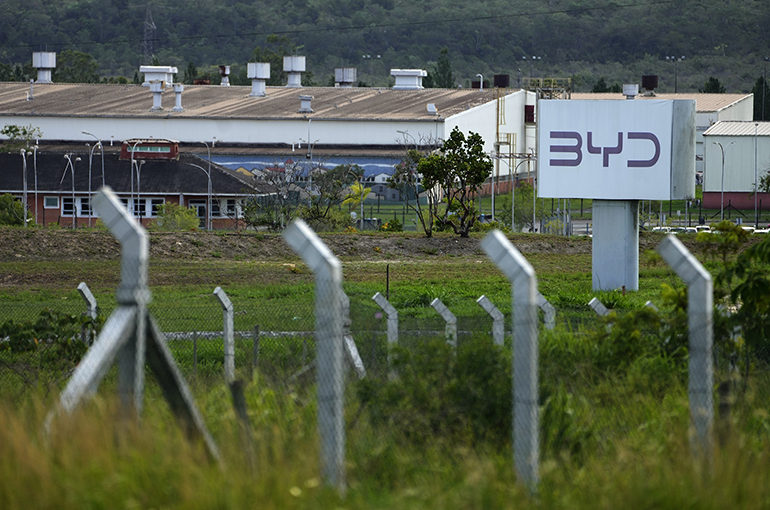 China's Carmakers Build Plants in Brazil to Meet Booming EV Demand, Beat Tariffs
China's Carmakers Build Plants in Brazil to Meet Booming EV Demand, Beat Tariffs(Yicai) July 24 -- Chinese automakers, including BYD and GAC Group, are building factories in Brazil to meet rising demand for affordable electric vehicles and to offset growing import tariffs.
A BYD dealer in Rio de Janeiro told Yicai that gasoline costs five times more than electricity, creating strong momentum for EV adoption. With limited competition, Chinese brands dominate the market.
"Among the EVs seen on the streets and alleys of Rio de Janeiro, nine out of 10 are Chinese brands," a local ride-hailing driver said to Yicai, adding that Chinese EVs save taxi drivers like himself at least CNY20,000 (USD2,796) per year through purchase tax saving as well as lower maintenance and energy cost, compared to gas-powered cars.
BYD and Great Wall Motor led Brazil's EV market in sales during the first five months of this year, according to the Brazilian Electric Vehicle Association.
The same BYD dealer said monthly sales of the Song and Dolphin special editions have nearly reached 50 units at his store, a sharp increase from last year. This growth is attributed to growing consumer confidence in the quality of Chinese EVs, particularly among private buyers and ride-hailing drivers. New Chinese entrants are gaining traction with local consumers thanks to intelligent technologies and improved product configurations, the salesperson added.
Next to the BYD dealership is a store that sells Honda-branded vehicles. The gas-powered Honda CR-V costs BRL150,000 (USD27,189), similar to the price of BYD's EVs. The Honda dealer said to Yicai that strong sales of Chinese EVs in recent months have hurt demand for fuel-powered cars and squeezed dealership profits.
Progressive Tariffs
Rising EV sales and changing trade policies are driving Chinese carmakers to localize production. Since January, Brazil has begun phasing in import tariffs on electric vehicles, which are set to reach 35 percent by July 2026.
A representative from a Chinese automaker's international market division told Yicai that exporting finished vehicles to Brazil is no longer the most viable strategy under the new tariff regime.
Chinese carmakers, including JAC Motors and Great Wall Motor, are expanding their output in Brazil, focusing on coastal port cities for logistics advantages. They are also setting up research and development centers in São Paulo to create a full local supply chain.
A BYD representative told Yicai that setting up an assembly plant is just the first step. The Shenzhen-based firm plans to invest in facilities for core components like batteries and chassis and expand collaboration with Brazilian suppliers to cultivate local talent in EVs, batteries, and smart manufacturing.
Editors: Tang Shihua, Emmi Laine